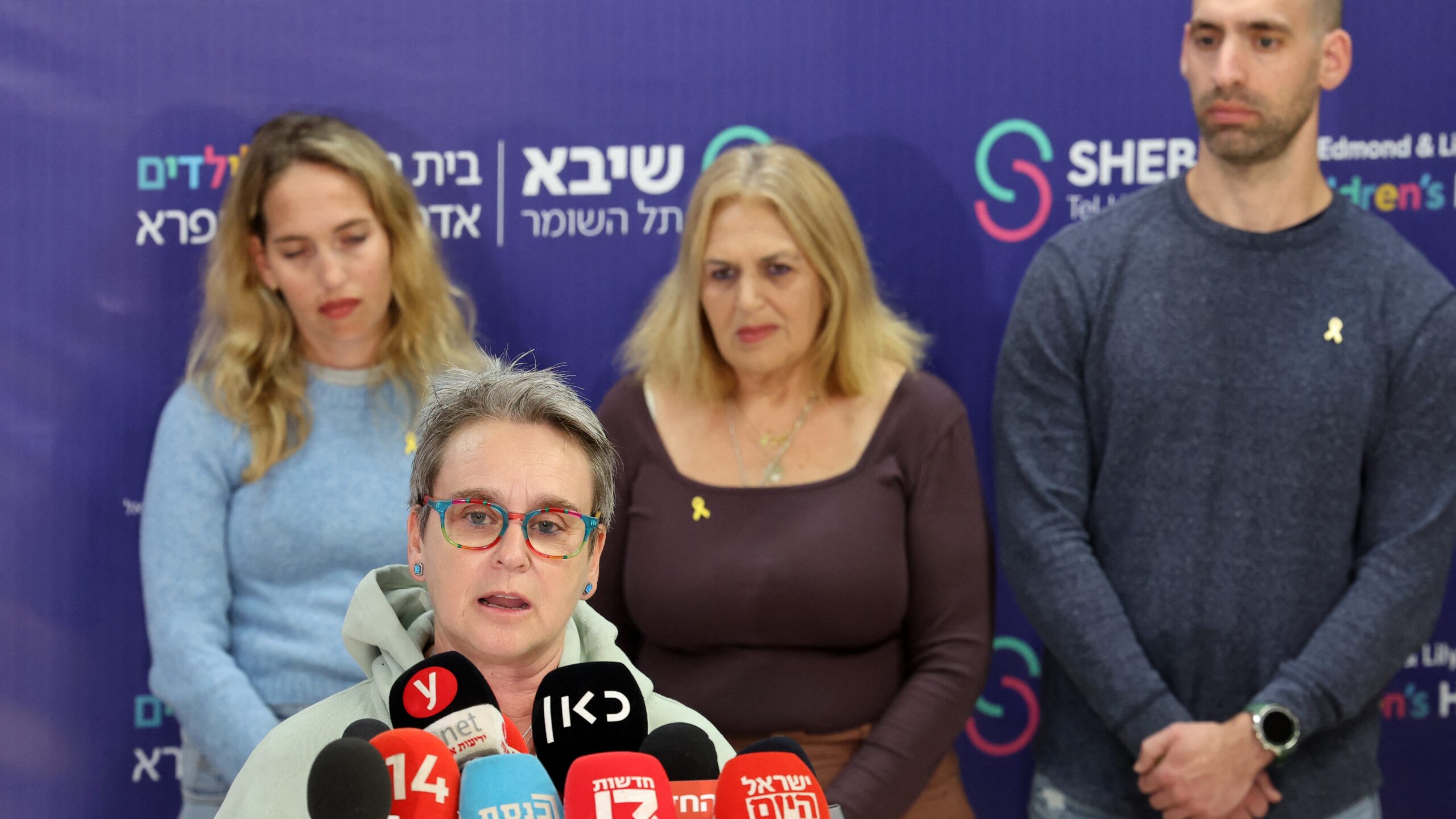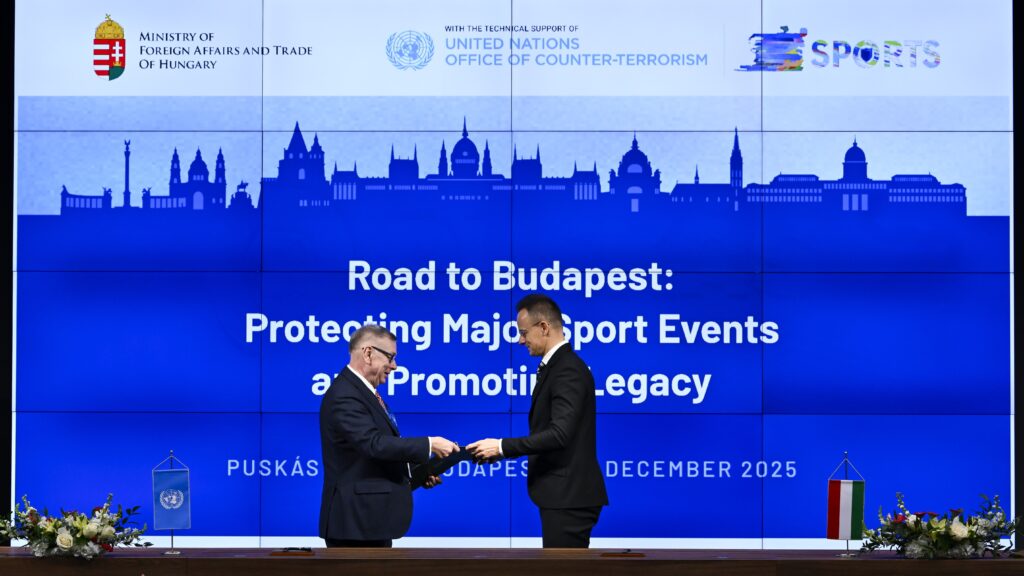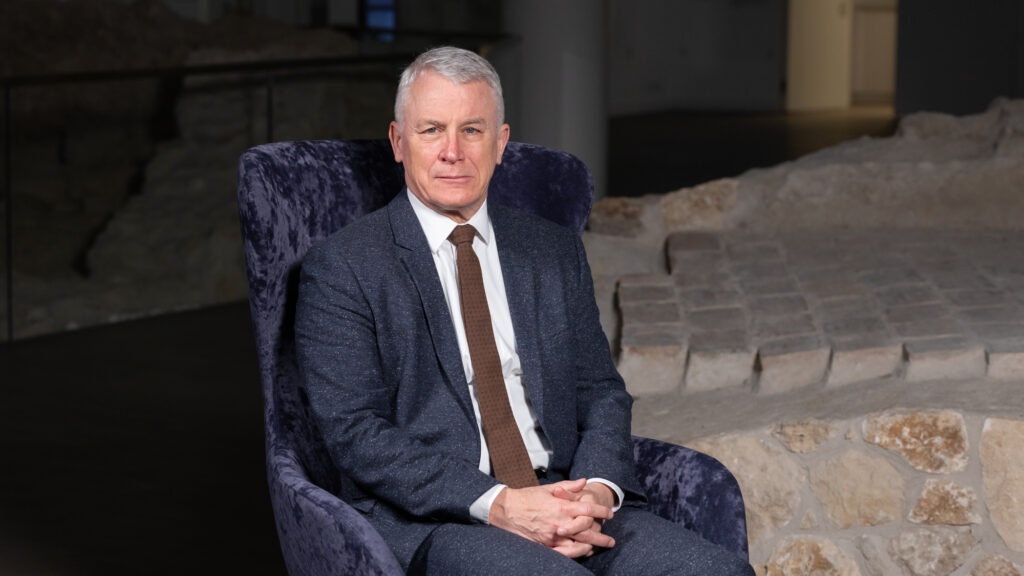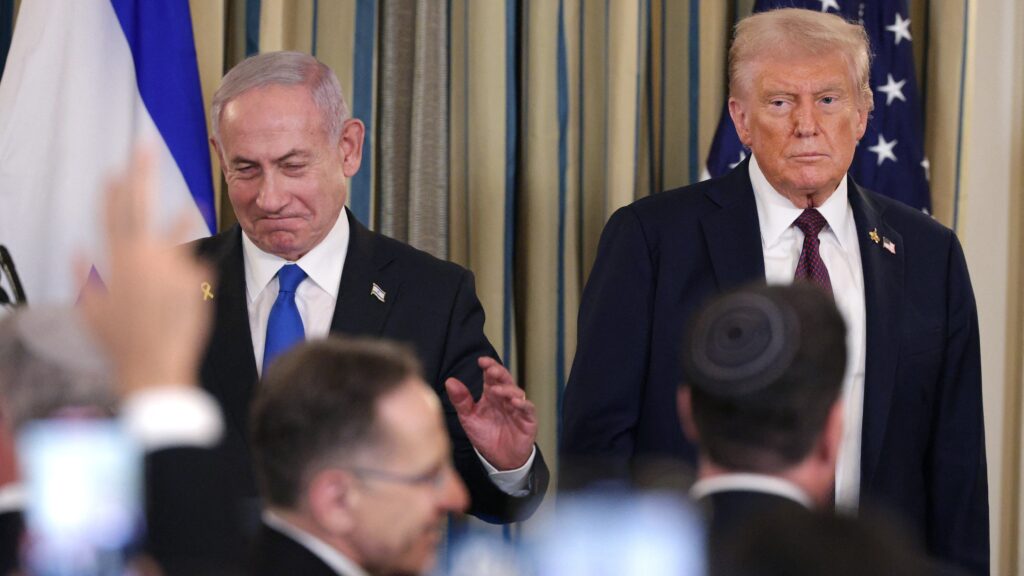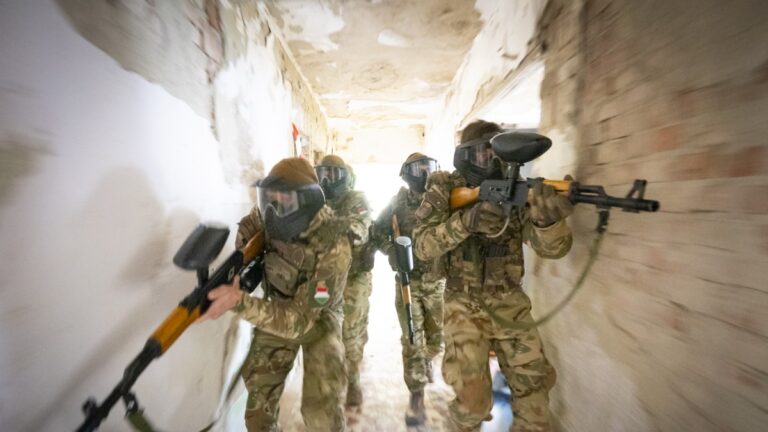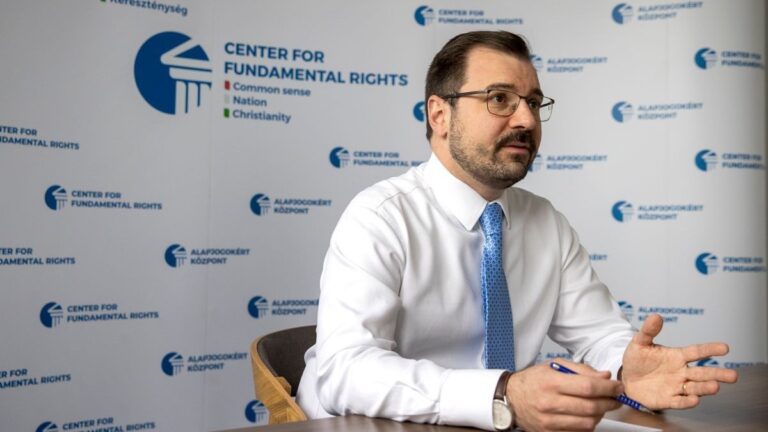As Hungarian Conservative reported, after 15 months of war, for the first time since November 2023 Hamas and Israel have reached a deal regarding Israeli citizens held captive in Gaza and a suspension of hostilities. Under the terms of the accepted ceasefire and prisoner exchange, Hamas released three Israeli captives from Gaza on 19 January, in exchange for 90 Palestinian prisoners being released from Israeli jails. After more than 470 days of captivity, Romi Gonen, Emily Damari, and Doron Steinbrecher were finally able to embrace their loved ones again that evening. According to the terms of the ceasefire and prisoner exchange agreement, the following four hostages are expected to be released in a week, with further releases to follow weekly. At the end of the weekend of the first phase, an additional 14 hostages will be freed.
Following the ceasefire agreement, the Hungarian Minister of Foreign Affairs and Trade, Péter Szijjártó, had this to say on his Facebook account:
‘The Gaza hostage and ceasefire agreement is very good news, as it brings the possibility of a peaceful life closer for the people living in one of the world’s war-torn regions. Moreover, this agreement will have a particularly positive impact on global security.
We express our respect and gratitude to the American, Egyptian, and Qatari diplomats involved in the mediation.
It is unacceptable that dozens of hostages have been living separated from their families for more than 15 months. Therefore, we call on all parties to the agreement to fully implement every phase of the agreement.
This, in turn, finally paves the way for the return of the Hungarian citizen still in captivity to their family.’
The Release of the First Three Hostages
On the evening of 19 January, masked Hamas gunmen handed over Romi Gonen, Emily Damari, and Doron Steinbrecher to the Red Cross at Saraya Square in central Gaza City. A large crowd, primarily consisting of young men, gathered in the square, waving flags of the Palestinian terror group and holding their cell phones in the air to film the event.
Looking thin and frightened, the hostages disembarked from a Hamas military vehicle, surrounded by armed men struggling to control the crowd, and quickly boarded the Red Cross SUVs. An AFP journalist on-site said the Hamas gunman initially tried to keep the public away from the ICRC cars, however when another convoy of white vehicles arrived in the square which carried the three women to be handed over, the crowd of several thousand surged forward to surround them. The footage showed balaclava-wearing gunmen stationed around the van containing the three women as others stood on top of it chanting ‘Allahu Akbar,’ or ‘God is the greatest’ in Arabic. The released Hamas propaganda video showed the release of the hostages, with gunmen from the Palestinian terror group giving the women ‘gift bags’ and ‘certificates’ before they were freed, which reportedly included photos of them in captivity.
Around half an hour later, the Red Cross handed the hostages over to elite Israeli troops and Shin Bet agents inside Gaza. They were then transferred to Israel to a complex set up by the IDF near the Gaza border at Re’im Base, where they met their mothers for the first time in over 471 days. They also met with IDF representatives, doctors, psychologists, and mental health officers and received initial treatment at the facility.
Three Resilient Women: The Amazing Story of Romi, Doron and Emily
Romi Gonen: ‘Dad, I came back alive!’
A 24-year-old young woman, Romi Gonen, described as ‘at her happiest when she dances’, was captured as she tried to escape the Nova music festival when it was targeted by Hamas as part of the 7 October 2023 attack. Romi travelled from her home in Kfar Veradim, Northern Israel, to the Nova Festival, which took place in the Negev desert in the south where more than 360 people were killed at the festival when Hamas fighters crossed over the border, 2km to the west. The desert landscape provided little cover for partygoers, and exit routes were obstructed by armed men. When the sirens started sounding during the attack, Romi called her family, and her mother, Meirav, remembered hearing gunshots and shouts in Arabic during her daughter’s final call.
Hamas militants ambushed Romi as she tried to flee.
The Hostages and Missing Families Forum stated that Romi attended the festival to pursue her passion for dancing, a discipline she had studied for twelve years. She starred in solo performances and became an exceptional choreographer. A video shared by the families’ forum last November described Romi as ‘the girl with the biggest smile, the brightest light, and the greatest friend.’ The forum also noted that her bedroom at home ‘remains exactly as it was when she left,’ patiently waiting for her return.
In a video clip shared by the Israeli military, Romi’s father was seen jumping in the air before breaking down in tears as he watched footage of his daughter’s release on 19 January and viral videos and photos were shown by the IDS as Romi after 471 finally could be in her mother’s arms. In one clip, Romi is seen speaking to her father, saying, ‘I came back alive.’
Following her release Romi said to the media the following: ‘There is life after death. I wanted to stop for a moment and say thanks to the people of Israel, my family, and my friends. The prayers and strength you sent accompanied us the entire way and helped us believe this nightmare will ultimately end.’
Doron Steinbrecher in her mother’s arms: ‘You’re with me now, and I’m keeping you safe!’
Doron Steinbrecher, a 31-year-old veterinary nurse, was abducted from her apartment in Kibbutz Kfar Aza, near Gaza’s northwestern border, during the Hamas attack. The community, one of many Israeli villages along the border, was heavily targeted by armed militants during the attacks on 7 October. Israeli officials reported that Hamas burned homes, killed civilians—including entire families—and took hostages.
As the assault began, Doron reached out to her family and friends on WhatsApp, informing them that she was hiding under the bed while militants advanced, as the Hostages and Missing Families Forum reported.
In her final voice message, she was heard screaming ‘They’ve caught me!’, as shouting and gunfire erupted in the background. Doron’s family did not receive any information about her whereabouts for almost four months.
‘After an unbearable 471 days, our beloved Dodo has finally returned to our arms,’ her family said in a statement released by the missing families forum on 19 January and added: ‘We want to express our heartfelt gratitude to everyone who supported and accompanied us along this journey.’
Doron studied theatre and film in school and developed a love for animals, which led her to become a veterinary nurse.
After her release, Doron’s mother called out to her daughter: ‘Can I hug you, my love? You’re with me now, and I’m keeping you safe!’
Emily Damari to her mother: ‘Yes! I survived just for you, my love.’
Emily Damari, a 28-year-old British–Israeli national, was taken hostage from Kibbutz Kfar Aza on 7 October, 2023. During the attack, she was shot in the hand and forced into Gaza from her home; tragically, she also witnessed her dog being shot and killed. Photographs after her release showed Emily with a bandaged hand and two missing fingers from that attack, which became a symbol of Israeli resilience.
Her mother, Mandy Damari, was in her separate home on the kibbutz on 7 October. Mrs Damari hid in the safe room and was saved when a bullet hit the door handle, preventing the attackers from getting in.
As the assault unfolded, Emily sent her mother a text message with a single heart emoji; that was their last contact.
Emotional images showed Emily reunited with her mother in Israel on 19 January, exclaiming, ‘Yes! I survived just for you, my love.’ A video of Emily hugging her mother while on a video call with her brother became viral as she tells her brothers, ‘My brothers! I survived!’
Emily’s mother said, ‘I want to thank everyone who never stopped fighting for Emily throughout this horrendous ordeal and never stopped saying her name. In Israel, Britain, the United States, and around the world. Thank you for bringing Emily home.’
Mrs Damari was born and raised in the UK. At the age of 20, she met her husband while on holiday in Israel. Emily, the youngest of four children, has strong ties to the UK; she is a Tottenham Hotspur fan and frequently visits to see her relatives.
According to Israel’s Channel 13, the three women hostages reported that they had been held in a UN refugee camp at some point during their captivity. Details were not given on what camps they were held in, when, or for how long. For this specific reason of being implicit in Hamas activities, on 28 October, despite international opposition, Israeli lawmakers have already voted overwhelmingly to approve two bills that essentially ban the United Nations Relief and Works Agency for Palestine Refugees in the Near East from operating in Israel and severely restrict its activities in Gaza and the West Bank, due to certain staff members’ direct ties to Hamas and other terrorist groups.
Péter Szijjártó: ‘The second phase gives hope that the last Hungarian hostage still held by Hamas can be released’
According to POLITICO’s information, The Trump administration has begun work on the second phase of the ceasefire-hostage deal between Israel and Hamas. Officials and advisers to US President Donald Trump’s Republican Party stated that they collaborated with the Biden administration but acknowledged that advancing the phased agreement would be challenging. ‘What Biden left us with is the end of the beginning, not the beginning of the end,’ one official tells the outlet.
As Hungarian Conservative reported, Hungarian Minister for Foreign Affairs and Trade Péter Szijjártó announced that Israeli Hungarian hostage Omri Miran will be included in the second phase of the release process outlined in the agreement. ‘We are pushing for the first phase of this agreement to be fully implemented from a priority national point of view, as the implementation of the first phase is a precondition for the second phase to be agreed,’ Szijjártó said. He added that the second phase gives hope that the last Hungarian hostage still held by Hamas can be released, as the current release phase prioritizes women and sick and elderly men.’ He explained that the Hungarian hostage is a young man who does not fall into these categories.
During the MERKAZ Hebrew and Israeli Cultural Centre conference on December 2023 in Hungary, Israeli Ambassador to Hungary Yakov Hadas-Handelsman delivered remarks, followed by the speeches by the hostages’ families, who told the audience about their personal experiences of the horrors that happened to them and their abducted family members where Lishay Miran, Omri Miran’s wife told his husband’s story. 46-year-old Omri Miran was taken captive on 7 October by Hamas terrorists from Kibbutz Nir Oz, leaving his wife, Lishay Miran, 38, and their six-month-old and two-year-old daughters. On 7 October, after hearing the sirens in the morning, the Miran family rushed to their safe room. At 10:30 a.m., Hamas terrorists broke into their house and forced them to come out together with a 16-year-old neighbour, Tomer Arbe-Eliaz, who asked the family to open the door, fearing for his life. The terrorists initially considered killing the family but opted to relocate everyone to a neighbouring house. As they were sitting on the floor with their neighbours, they heard how the 18-year-old daughter of the neighbouring family was killed by the terrorists in their safe room. At around 1 p.m., two more women were brought to the house, and thirty minutes later, the terrorists instructed Omri and the other family’s father to stand and took them, along with their car keys. Lishay told Omri minutes before: ‘I love you, I’ll protect our girls, we’re waiting for you, and don’t be a hero.’ After Omri was abducted, Lishay and her girls, along with her neighbours, had to sit for another four hours until IDF soldiers found them at 5:30 p.m.
Lishay described the fear she felt on 7 October when Hamas attacked. Lishay added that the Jewish people of Israel do not see 7 October as another stage in the Arab–Israeli conflict but as a new Holocaust, a new Shoah. She said although they always repeat ‘Never again!’, and yet it happened. However, she said she is hopeful for the future and looking forward to being reunited with her loved ones.
Daniel Miran, the father of Omri Miran, highlighted that although he was bitter and heartbroken about the loss of Omri, he felt happy that his daughter and grandchildren were alive and that there was hope for Omri’s return. Miran also stressed that he was extremely grateful for the support of the Hungarian people, and he also expressed his gratitude to the Hungarian government and the Israeli Embassy for their help in the difficult situation.
Szijjártó stated that during a telephone conversation, he assured his Israeli counterpart, Gideon Sa’ar, of Hungary’s full support towards the Jewish state and stated: ‘I assured my Israeli counterpart that Hungary stands with and behind Israel on this issue, and support the implementation of the ceasefire agreement.’ ‘We understand that this was a very difficult decision for the Israeli government, and we appreciate the commitment of the Israeli government and the mediators who worked to bring about this agreement,’ he added.

